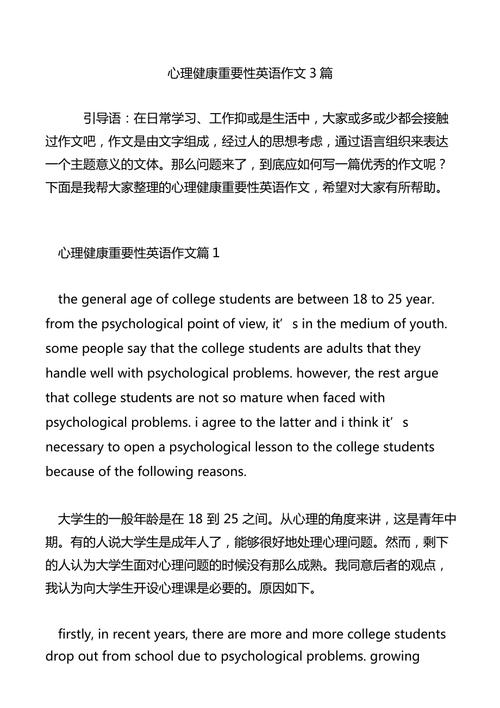描写心理的英文单词
Title: Crafting Descriptive Sentences in Psychological Writing
In psychological writing, effective description plays a crucial role in conveying emotions, thoughts, and perceptions. Here are some examples of descriptive sentences commonly used in psychological context:
1. "She felt an overwhelming sense of anxiety, as if a dark cloud loomed over her thoughts, suffocating any sense of calm."
2. "His mind was a whirlwind of conflicting emotions, each vying for dominance and leaving him feeling utterly paralyzed."
3. "The room seemed to close in on her, the walls pressing in like a physical manifestation of her growing unease."

4. "His thoughts were a tangle of worry and doubt, each thread weaving a complex web of unease through his mind."
5. "Her heart raced as if it were trying to escape the confines of her chest, the rapid thumping echoing in her ears."
6. "He felt a creeping sense of dread, the kind that starts in the pit of the stomach and slowly works its way into every fiber of one's being."
7. "The weight of sadness settled on her like a heavy cloak, dragging at her shoulders and making each step an effort in futility."
These examples showcase how descriptive sentences can effectively convey the intricacies of human emotions and experiences in a psychological context. When writing about psychological experiences, it's essential to use descriptive language that captures the nuances of thoughts, feelings, and sensations in a way that resonates with the reader.
Remember, effective psychological description goes beyond just stating emotions; it paints a vivid picture that allows readers to deeply empathize and understand the human experience.











